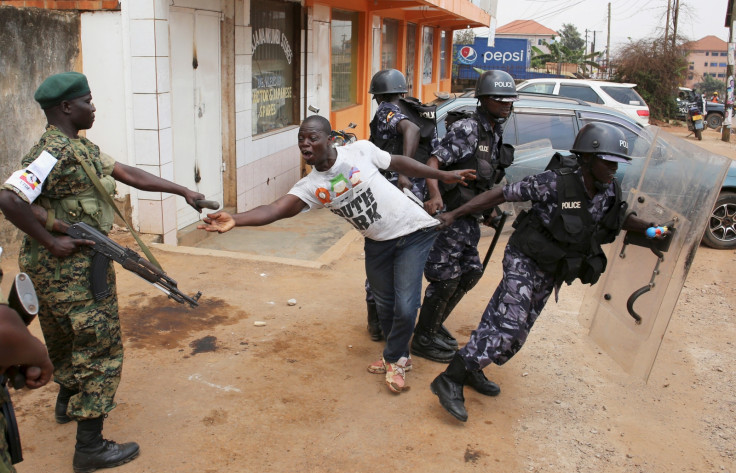Uganda has damning human rights record as torture and state oppression is rife says HRW
Basic rights are consistently violated and security forces continue to use 'excessive force and torture'.

Human Rights Watch (HRW) has urged countries participating in the 3 November United Nations (UN) Human Rights Council review to reject the Ugandan government's rhetoric on its progress in promoting respect for human rights.
The Council is scrutinising Uganda's human rights record as part of a mechanism dubbed the Universal Periodic Review (UPR). During the process, each UN member state has the possibility to outline what actions they have taken to improve the human rights situations in their countries.
In its last review in 2011, Uganda agreed to implement a number of recommendations. Among them, taking steps to ensure the full respect for freedom of association and peaceful assembly and investigating the excessive use of force and torture by security forces. Uganda also vowed to prosecute and punish perpetrators of abuses.
Five years down the line, the government declared in its submission it has made "tremendous progress in promoting respect for human rights". It highlighted numerous human rights desks, committees, and subcommittees on human rights in different government offices.
According to HRW, key accountability bodies today remain toothless or ignored, and victims are left "with nowhere to turn" because of the "entrenched climate of impunity".
Opposition parties have only been allowed to exist legally in Uganda since 2005, and violence and intimidation have marked most elections – including the 2016 poll. The proliferation of these human rights desks did not hinder obvious police violence and repression during the run-up to and during the February 2016 election, when police tear-gassed and beat journalists and opposition supporters.
The state shut down social media for five days to muzzle critical voices during the elections - a move described as not free and not fair by local observers.
No concrete progress has been made to hold police and military members accountable for the killings of protesters and bystanders in September 2009 and April 2011, HRW said.
In its submission, Uganda said its Human Rights Commission is addressing police abuses, "but there is little evidence of that", said HRW.
"Uganda may give itself credit for criminalising torture in 2012. Unfortunately, no officials – police or military – have ever actually faced trial for charges under that law. So, torture continues without redress," said HRW in a statement ahead of the Council's UPR. "Uganda should take concrete actions to address ongoing human rights abuses."
Last month, Ugandan President Yoweri Museveni described the International Criminal Court (ICC), which investigates and prosecutes cases of genocide, war crimes and crimes against humanity, as "useless" after Gambia became the latest African nation to say it would leave the ICC.
Museveni – who is seen as a potential contender to join the 'exit' club – is accusing the world court of persecuting and humiliating Africans.
© Copyright IBTimes 2025. All rights reserved.






















